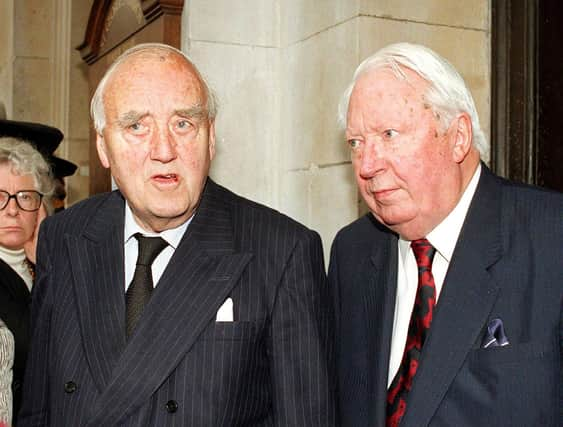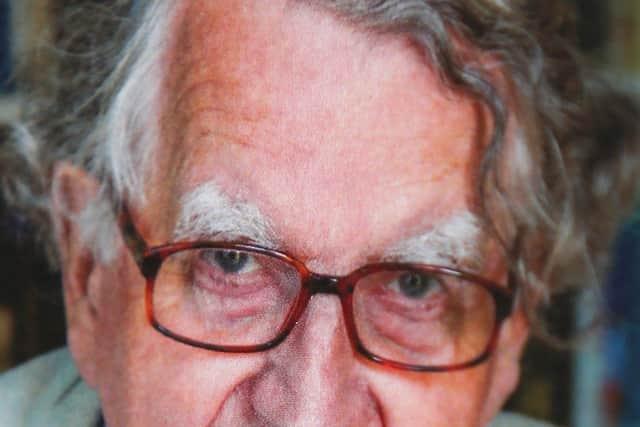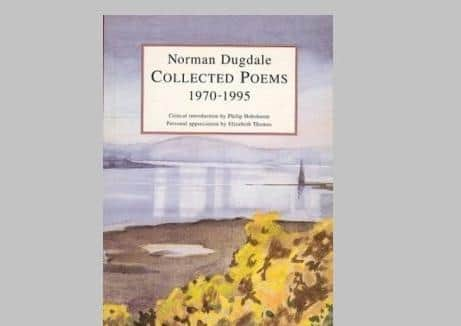The Northern Ireland Civil Service has had leaders of great integrity such as Norman Dugdgale and Maurice Hayes


(‘His article can be read here: ‘Who can restore the broken authority of the Northern Ireland Civil Service?’)
Thankfully, the NICS has had permanent secretaries (heads of department) of great integrity who challenged that description.
Advertisement
Hide AdAdvertisement
Hide AdDuring my thirty years I was privileged to work with two of them: Maurice Hayes and Norman Dugdale.


Hayes has written extensively about his life and many roles in the public sector: Sam mentions him in his booked Burned as one of the ‘honourable exceptions’ who put serving the community above their own careers.
Dugdale was another such exception, less well known. Born in Lancashire, he moved here in 1948 and headed up the Department of Health and Social Services from 1970 to 1984.
Hayes described him as ‘a wonderful man to work for and one deeply committed to producing a fairer and more equal society’.
Advertisement
Hide AdAdvertisement
Hide AdWhen the Conservative government of Ted Heath suspended the Parliament of Northern Ireland in 1972, Dugdale cautioned the first British Secretary of State, Willie Whitelaw, against the radical changes proposed by the authors of ‘powersharing with an Irish dimension’.


In a personal memorandum, he wrote:
‘By raising false expectations on the one side and exacerbating real fears on the other, those who hanker for an early political settlement may only be increasing the instability of an already unstable and volatile situation. Inconvenient as it would be from the standpoint of Westminster or Whitehall, realism may require a prolongation of the present interregnum, possibly for several years, until new opportunities and fresh groupings of political forces emerge in Northern Ireland.’
Whitelaw dismissed Dugdale’s warning, but events proved him right.
The failure of the Sunningdale Agreement in 1974 set political progress here back by decades.
Advertisement
Hide AdAdvertisement
Hide Ad

Dugdale nevertheless worked well with Paddy Devlin, SDLP Minister for Health during the short-lived powersharing Executive. Although very different in background and belief, they developed a mutual understanding based on a shared a love of literature and concern for society’s casualties.
Like Hayes, Dugdale was a published author, not of memoirs but of short poems. These were reprinted in 1997 as Collected Poems 1970-1995.
Much of his work is set in Belfast or rural Ireland. His style is elegant, sometimes austere.
One is caustic about Whitelaw and his colleagues: ‘... gentlemen newly come / to live here at the Governor’s Lodge. Two years from now / You will be safely home again and dining out / On your bizarre experiences, which cannot fail / To please your hostess and amuse the company.’
Advertisement
Hide AdAdvertisement
Hide AdWe must hope that the new Head of the Civil Service, soon to be appointed, will display the same level of critical intelligence and integrity as Hayes and Dugdale, despite the deep structural flaws in the system in which they are required to serve.
Dr WB Smith, Belfast BT15
——— ———
A message from the Editor:
Thank you for reading this story on our website. While I have your attention, I also have an important request to make of you.
With the coronavirus lockdown having a major impact on many of our advertisers — and consequently the revenue we receive — we are more reliant than ever on you taking out a digital subscription.
Subscribe to newsletter.co.uk and enjoy unlimited access to the best Northern Ireland and UK news and information online and on our app. With a digital subscription, you can read more than 5 articles, see fewer ads, enjoy faster load times, and get access to exclusive newsletters and content. Visit https://www.newsletter.co.uk/subscriptions now to sign up.
Advertisement
Hide AdAdvertisement
Hide AdOur journalism costs money and we rely on advertising, print and digital revenues to help to support them. By supporting us, we are able to support you in providing trusted, fact-checked content for this website.
Alistair Bushe
Editor